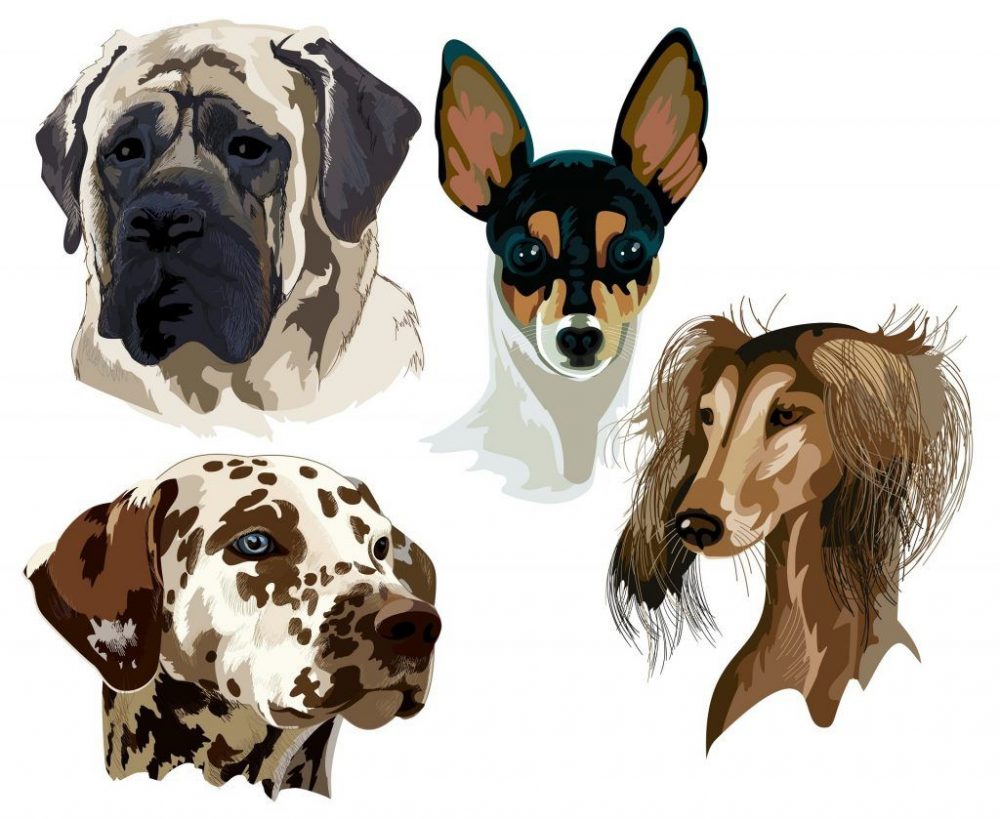

With over 150 AKC-recognized dog breeds as well as hundreds of ‘designer breeds’ like the Maltipoo, Labradoodle and Puggle, it can be hard to decide on what breed of dog is right for you.
Your lifestyle is far more important than personal preference when it comes to your new, furry friend. Some types of dogs can be left alone for long periods of time; others need plenty of exercise and wouldn’t do well cooped up in an apartment.
Here we cover the basic characteristics of some of the major breed groups to help you can make an educated decision.
Herding and Working Dogs – These dogs were bred for a purpose. From pulling sleds, guarding the home or herding farm animals, these pups have a strong work ethic and make excellent companions. They were selectively bred to be intelligent, capable and hard working. Many are larger in size, and need plenty of exercise and ‘jobs’ so they don’t become bored or destructive. They are quick to learn new tricks, and are a great choice for someone with the time and energy to train and exercise with them.
Examples:
- German Shepherds
- Boxers
- Collies
- Rottweilers
Hound Dogs – Hounds were originally used to help hunters locate and track down their prey. As they are attuned to sniffing out or looking for quarry, these animals may have highly developed senses of smell. These dogs can be difficult to train, as they were bred to essentially take off after an animal and hunt it down. The hound dog owner must have patience, as the dog could run after passing cars, squirrels or anything else that moves. They have excellent stamina and would make superb jogging or running companions.
Examples:
- Beagles
- Rhodesian Ridgebacks
- Basset Hounds
- Bloodhounds
Sporting Dogs – These well-rounded breeds make excellent family pets, although they do require regular exercise. Some of the most popular breeds are sporting dogs, as they are generally affable and family friendly. They are intelligent, easygoing dogs and take well to training. A sporting dog can be a very good option for families with small children, as they tend to be gentle and good with kids.
Examples:
- Labrador Retrievers
- Golden Retrievers
- German Shorthaired Pointers
- Cocker Spaniels
Terrier Dogs – The word ‘terrier’ comes from the Latin word ‘terra,’ meaning earth, and these dogs certainly love to dig! These breeds were bred to burrow after vermin and rodents, and can be very feisty. An owner must have a lot of patience with a terrier, as they can be noisy and energetic. They are generally smaller in stature, but unusually fierce for their size, so they make good watchdogs. Terriers don’t always get along with other animals, so if you plan on having multiple pets, this may not be a good choice for you. They are often seen as mischievous rascals, and make a fun pet if you have patience and a good sense of humor.
Examples:
- Miniature Schnauzers
- West Highland White Terriers
- Soft Coated Wheaten Terriers
- Bull Terriers
Toy Dogs – While every dog group has some small breeds, toy dogs are perfect for apartment dwellers. They don’t require much exercise, as they tire easily due to their small stature. Toy dogs were bred as companions and love snuggling on your lap and basking in your attention. They are loyal and intelligent, although they can tend towards yappiness. Because of their small size, toy dogs may not be a good choice for people with small children, as they are more fragile than the hardier breeds.
Examples:
- Yorkshire Terriers
- Poodles
- Cavalier King Charles Spaniels
- Shih Tzu
While this list of dog groups is by no means comprehensive, you can narrow down your choice of dog breed by picking the group that fits into your lifestyle and appeals to you the most. Each group has larger and smaller dogs, so look for a breed that would be most comfortable with your living situation. In general, the bigger the dog, the more exercise he will need. Also think about the amount of work you’re willing to do; will you really exercise with your dog every day? An unhappy dog leads to an unhappy owner, so do your research and choose a breed that’s right for you.




